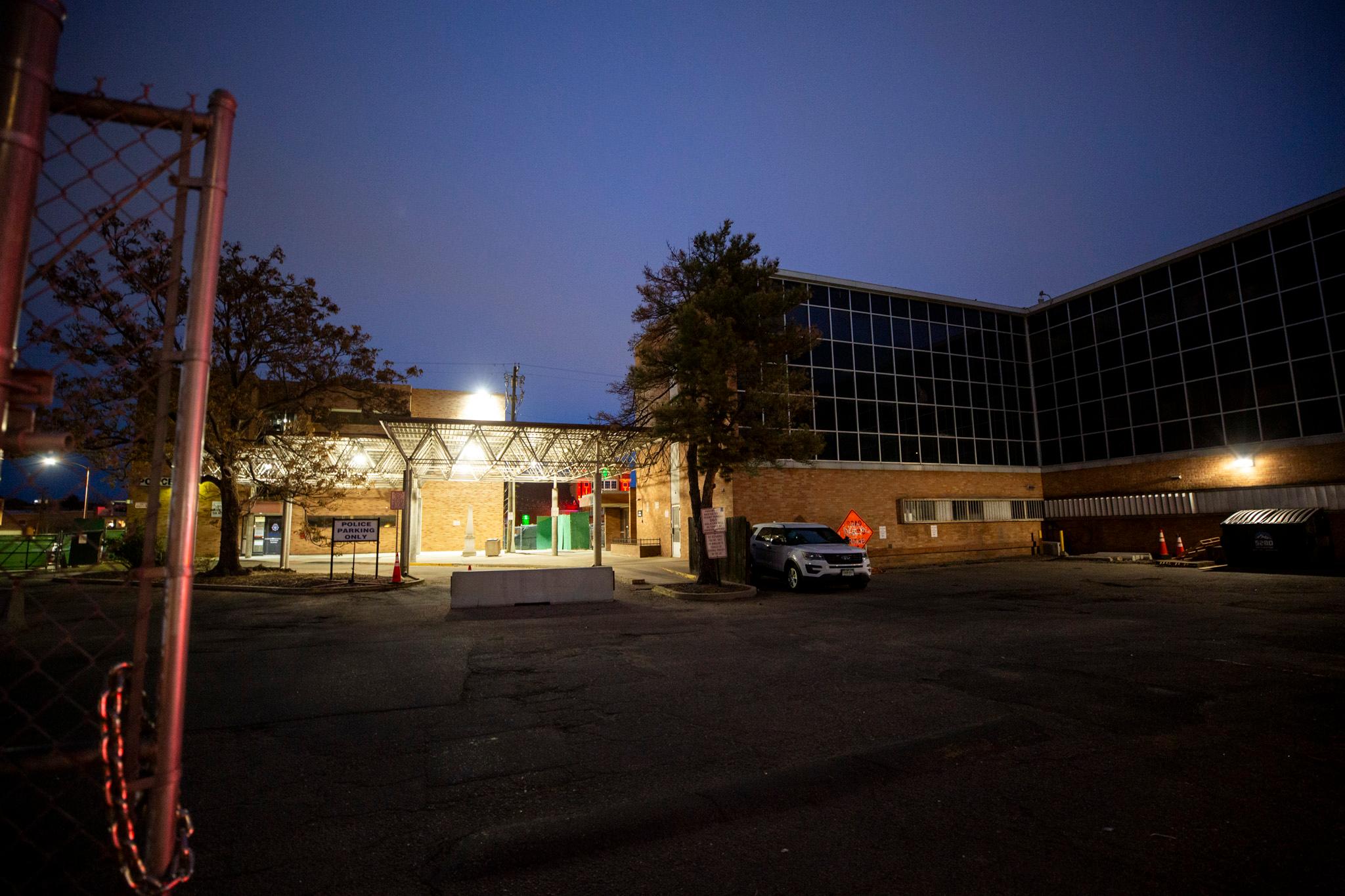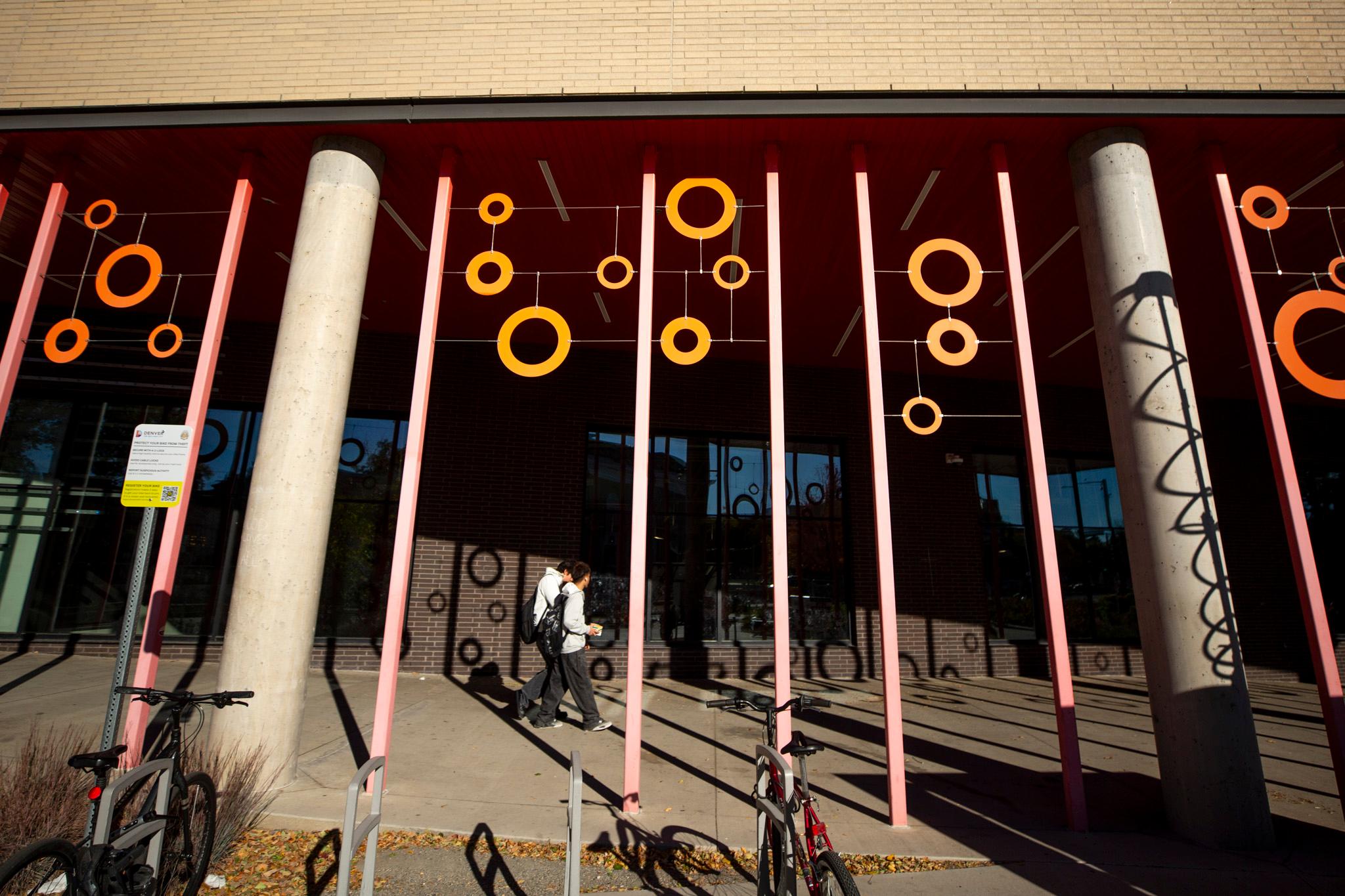Updated at 12:07 p.m. on Tuesday, April 22, 2025
This story was originally published by Chalkbeat. Sign up for their newsletters at ckbe.at/newsletters.
By Jason Gonzales/Chalkbeat
Beyond High School is our free monthly newsletter covering higher education policy and practices in Colorado. Sign up to get it delivered to your inbox early.
Denver Public Schools now has a school able to grant students an associate of applied science degree.
House Bill 1221, signed into law by Gov. Jared Polis last week, will allow Emily Griffith Technical College, which is a DPS area technical college, to grant students the associate degree, which is geared toward occupational work. Previously, the postsecondary Emily Griffith school could only offer certificates in fields such as in accounting, cosmetology, and dental assisting.
Although Colorado students already have the ability to gain a college degree while in high school through dual enrollment or early college programs, districts don’t grant those associate degrees and the DPS school hasn’t had the authority to grant an associate degree. Instead, other colleges and universities must award students credentials.
“This is a transformative moment not just for DPS, but for public education across the country,” said Denver Public Schools Superintendent Alex Marrero in a Monday news release. “By removing barriers between high school, college, and career, we’re reimagining what it means to truly prepare students for the future.”
Associate of applied science degrees typically help students enter into the workforce or gain skills in specific trades, such as in information technology, early childhood education, or nursing.
The new law requires the district’s technical college to gain approval for the new degree program from the state board for community colleges and occupational education. The program must also include an apprenticeship program, general education courses, and align with certain occupations.
In recent years, Colorado Gov. Jared Polis has pushed to increase K-12 and college connections in the hopes of making higher education more affordable. That means the state has created more opportunities for students to get college experience, such as through the dual or concurrent enrollment and early college programs offered in high schools.
While DPS is the first district to have a school with the authority to grant a college degree, the state has already expanded the traditional roles of community colleges and universities.
Some Colorado community colleges are allowed to grant bachelor’s degrees and high school diplomas to adult education students. And universities have the authority to grant associate degrees to certain students.
“This is how we build equity, open doors of opportunity, and lead with bold vision and unwavering purpose to serve our students,” DPS Board of Education President Carrie Olson said in the news release.
It’s unclear how many district-run technical colleges nationwide have associate degree-granting authority, said Josh Wyner, the founder and executive director of the College Excellence Program at the Aspen Institute. The nonpartisan nonprofit’s program aims to improve access to higher education, graduation rates, and students’ ability to get jobs after college.
South Dakota does have technical colleges that report to the state’s K-12 education commissioner and can issue degrees, he said. But there are few state examples, he said.
Colorado’s new law shows progress toward the state’s goal to connect more students to employment opportunities post high school, he said. Applied science degrees have high job placement rates.
“It makes sense that the legislature would want more of those conferred,” he said.
There are possible challenges, he said. Community colleges are built to respond to labor market needs and typically have robust partnerships with employers that aren’t necessarily in place in K-12 districts. Recent studies also show that employers highly value bachelor’s degrees.
“These credentials have good value in the labor market,” he said. “But when legislatures are considering the alignment of higher education to the labor market, I’d like to see them to include bachelor’s attainment.”
This story has been corrected to reflect the students Emily Griffith Technical College serves and that the college is an area technical college within DPS. Emily Griffith college leaders will seek approval from the state for the degree program.
Editor's Note: Chalkbeat corrected this story to reflect the students Emily Griffith Technical College serves and that the college is an area technical college within DPS. Emily Griffith college leaders will seek approval from the state for the degree program.
Jason Gonzales is a reporter covering higher education and the Colorado legislature. Chalkbeat Colorado partners with Open Campus on higher education coverage. Contact Jason at [email protected].
Chalkbeat is a nonprofit news site covering educational change in public schools.













